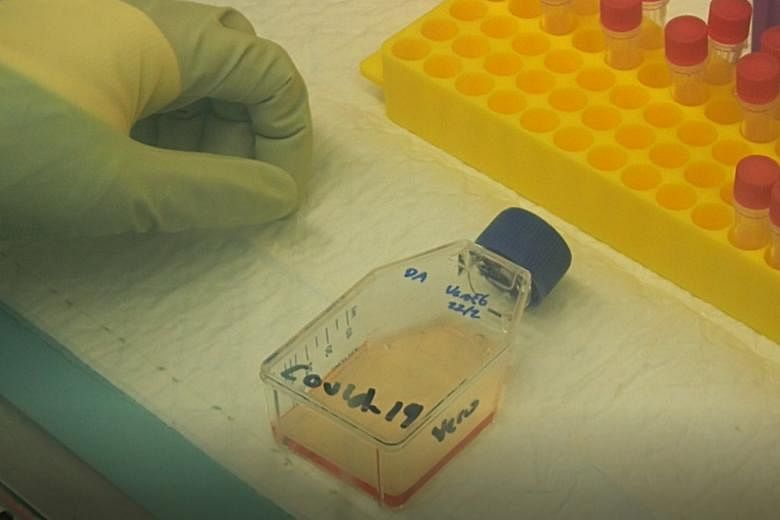Trials of a Covid-19 vaccine being worked on by the Duke-NUS Medical School and American medicine company Arcturus Therapeutics have "exceeded expectations", potentially allowing human trials of it to be brought forward to August.
Professor Ooi Eng Eong, deputy director of the school's emerging infectious diseases programme, previously told The Straits Times last month that his team hoped to begin dosing humans with the vaccine in September.
But yesterday, Prof Ooi said that this timeline could be shortened by a month as animal models of the vaccine had shown very promising results.
The vaccine contains genetic material called mRNA, which encodes part of the virus. Injected into a person, it causes the body's cells to begin manufacturing a protein similar to that of the virus, allowing the body to recognise and learn to fight it.
Prof Ooi said that most vaccines require two doses at least a month apart to be effective.
But results of the studies thus far seem to indicate that only one dose of the vaccine by Duke-NUS and Arcturus is required, as the immune response it triggers has been very good.
Animal models have also shown that the vaccine is safe so far.
This has accelerated the vaccine research and development timeline, and Prof Ooi said the researchers are looking into bringing forward the start date of the clinical trials.
"We're always trying to move ahead as fast as we can," he said.
The trials will initially involve a small group of healthy adults and, if the vaccine is proven to be safe, may later be expanded to include the elderly and young children as well, said Prof Ooi.
After that, another set of trials will need to be conducted on a larger scale, where people who have been given the vaccine are studied to see if they get infected naturally.
How these trials go depends on the coronavirus situation here over the next few months. If there are more cases, this phase will be quicker, as there is a higher risk of exposure, and it will be easier to tell how effective the vaccine is, said Prof Ooi. But if there are fewer cases, then this trial phase could be longer.
This makes it difficult to predict when the vaccine could be ready for general use, but he is hopeful.
He said: "The results we have got thus far are reasons for optimism."


